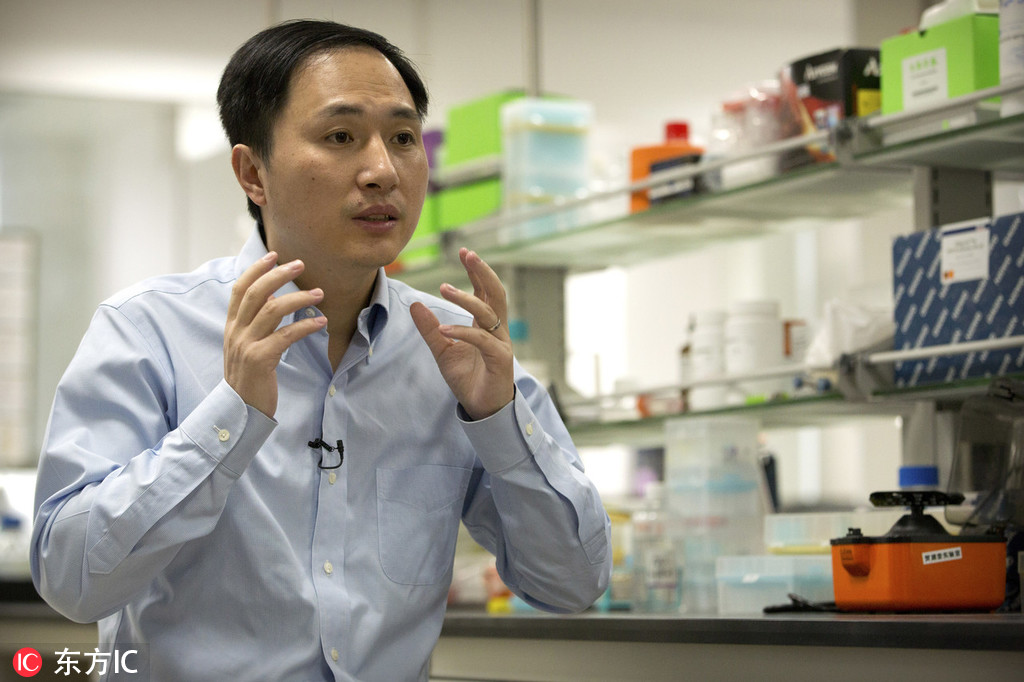Investigation of human gene editing claim justified: China Daily editorial
China Daily | Updated: 2018-11-27 20:01

That the National Health Commission ordered an investigation into the claim by a Chinese scientist to have done the first human gene editing immediately after the news broke on Monday suggests that the practice itself is problematic.
He Jiankui claimed to have created the world's first genetically edited babies with the approval of the ethics committee of a pediatric hospital in the city of Shenzhen. However, the hospital has denied this.
Southern University of Science and Technology where professor He used to work until early this year, and where he is still on the roster, said its biological academic committee believes that if what He claims is true, it would be a serious violation of medical ethics, and it too would conduct an investigation.
Indeed, voices from almost all relevant departments and other scientists point to this experiment not undergoing an ethical examination and gaining the needed approval.
A declaration jointly signed by 122 Chinese scientists and published online expressed strong opposition to and condemnation of this experiment, calling what He did "crazy".
That is not because the editing of the CCR5 gene of the two babies concerned was ill intended; He said it would prevent them from contracting HIV. But because, as the Chinese scientists said in their joint declaration, although human gene editing was feasible years ago, it has never been done because there are questions about its consequences and whether it is ethical.
Gene editing technology still leaves much to be desired when it comes to whether the gene being edited has been precisely targeted or whether the edited gene could develop some new functions that could negatively affect a person's health. That could eventually affect the entire human gene pool as the genes could be passed down from generation to generation.
A scientific experiment, such as this, which is closely related to human health, could be disastrous were it conducted without rigorous safety guarantees.
That explains why such experiments are still considered a no-no and human gene editing unethical.
There is no knowing why He did his experiment. It would be to his shame if he did it simply to gain fame.
So a thorough investigation is more than necessary and urgent. The truth behind the announcement that suggests such an experiment was conducted without approval needs to be clarified and any loopholes in the management of such sensitive scientific research must be closed.
We now have to wait and see what the health commission's investigation uncovers, so supervision can be effectively tightened.
























